Improving number sense Normal Worksheets for Ages 7-8
6 filtered results
-
From - To
Enhance your child's math skills with our "Improving Number Sense Normal Worksheets" designed specifically for ages 7-8. These engaging worksheets offer a variety of activities that focus on fundamental math concepts, such as addition, subtraction, number patterns, and place value. Perfect for reinforcing classroom learning or offering extra practice at home, our resources aim to strengthen your child's number sense and build confidence in their mathematical abilities. With a mix of fun exercises and challenges, these worksheets keep learning enjoyable and relevant. Start paving the way for your child's success in math today! Explore our collection and watch their skills grow!
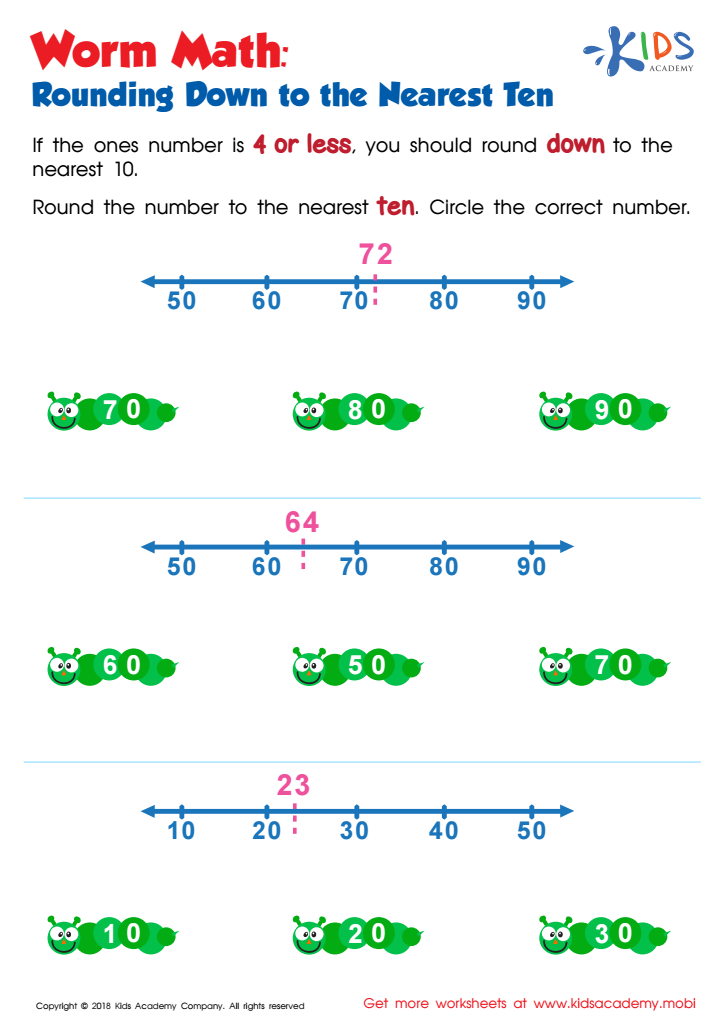

Worm Math Rounding Down to the Nearest Ten Worksheet
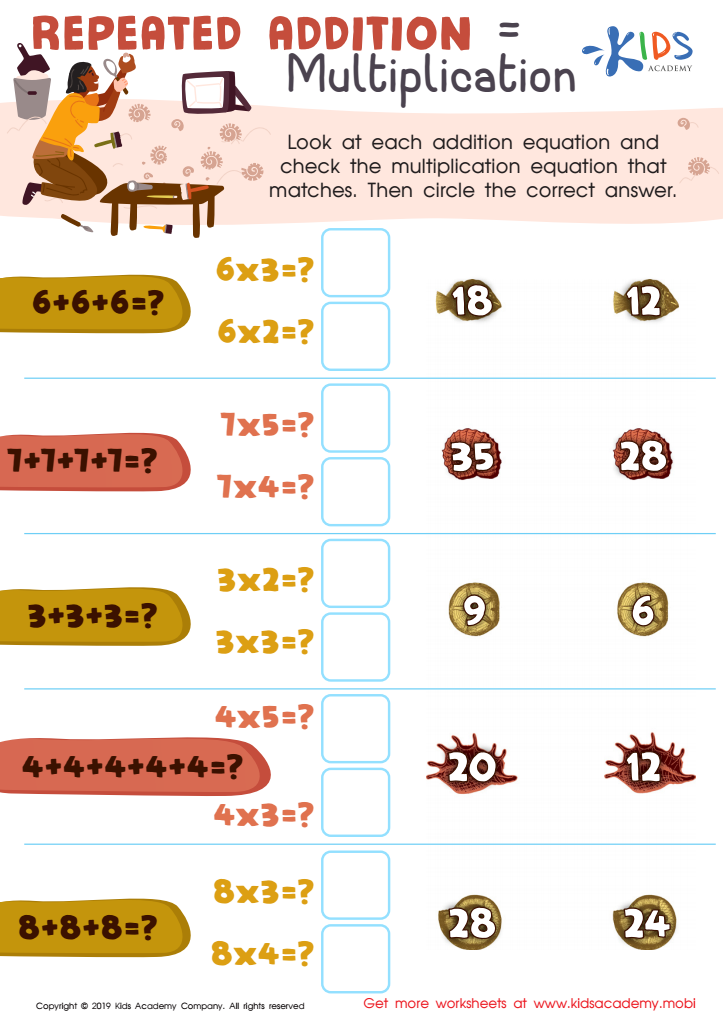

Repeated Addition = Multiplication Worksheet
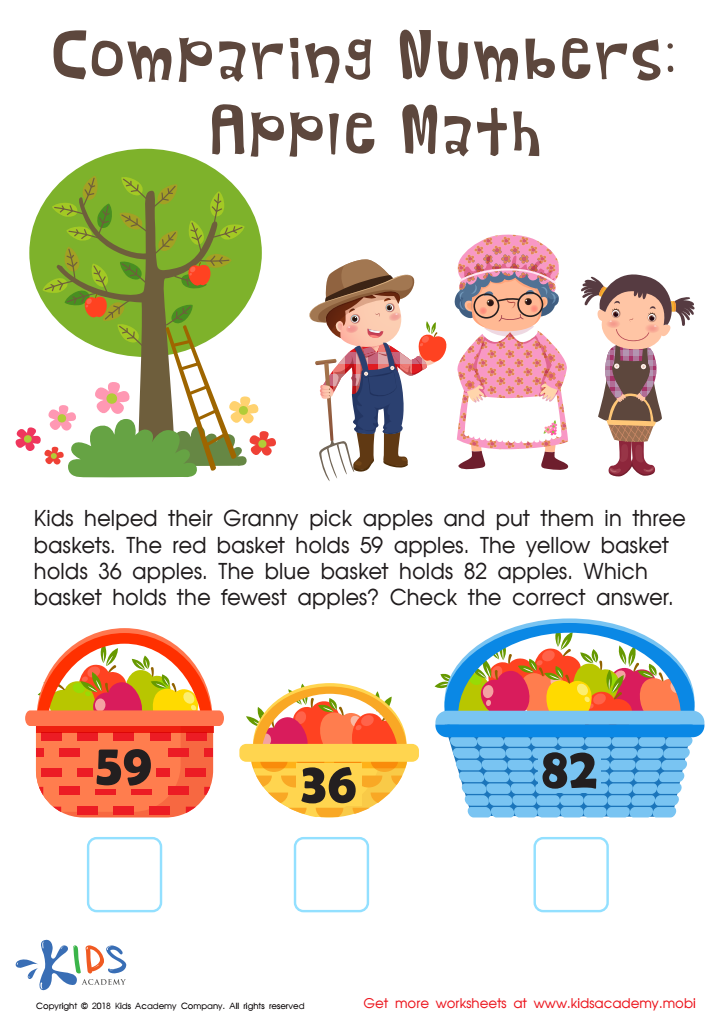

Apple Math Worksheet
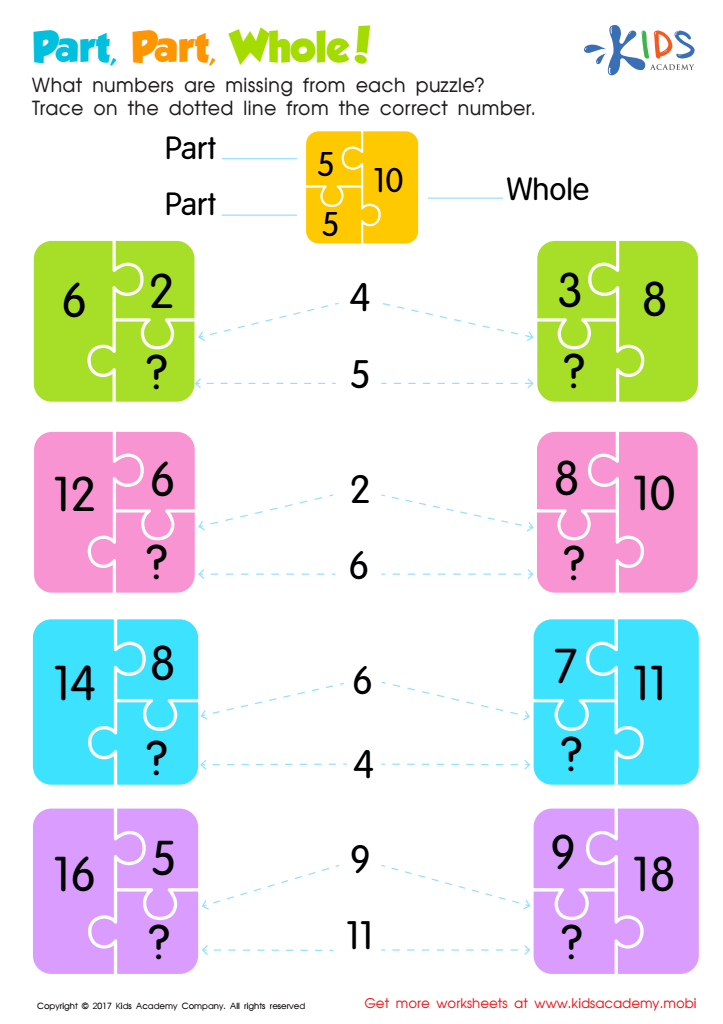

Part, Part, Whole Worksheet
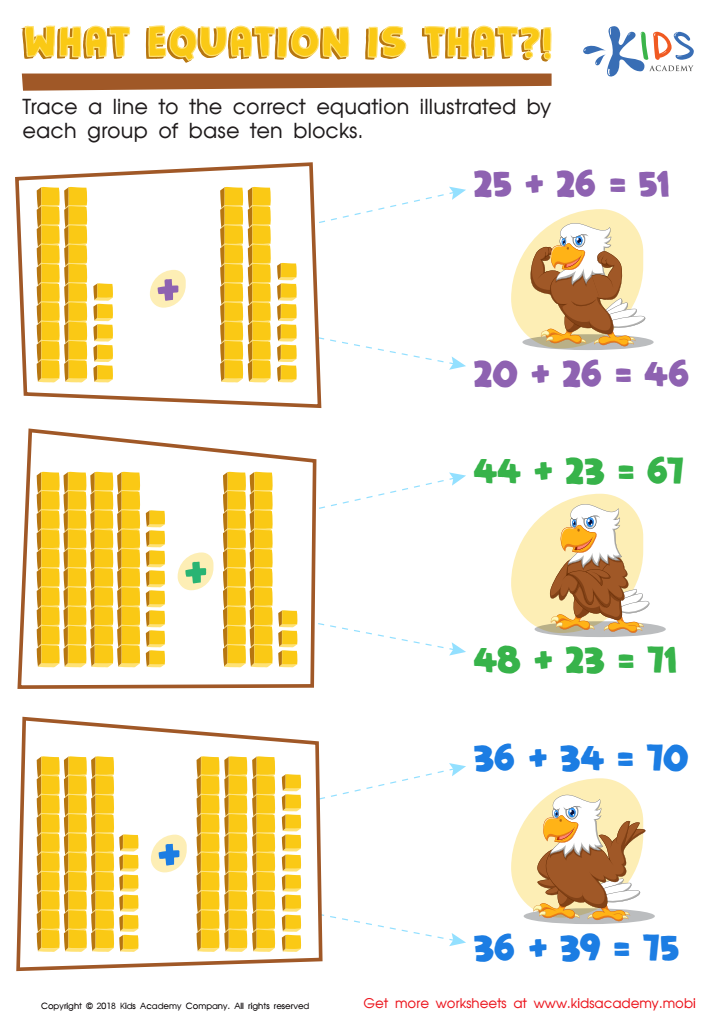

What Equation Is That? Worksheet
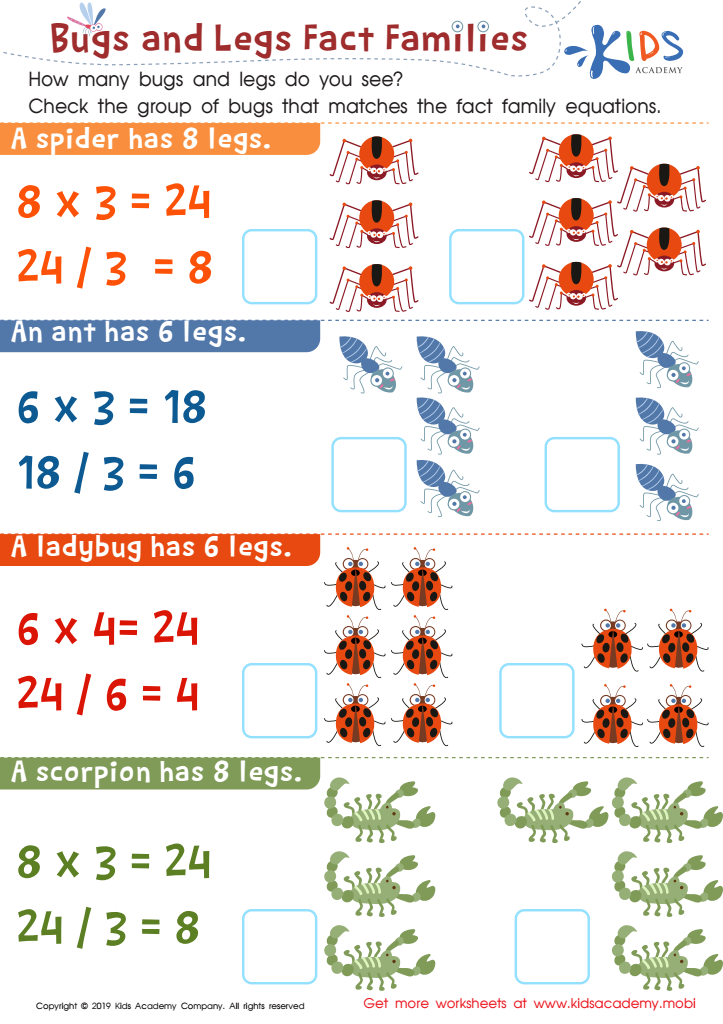

Bugs and Legs Fact Families Worksheet
Improving number sense in children aged 7 to 8 is crucial for their overall mathematical development and academic success. Number sense refers to the ability to understand, interpret, and work with numbers. At this age, children transition from basic arithmetic to more complex concepts, making it essential to build a solid foundation.
Parents and teachers should care about fostering number sense because it supports critical thinking and problem-solving skills. Developing robust number sense helps children make connections between different mathematical concepts, promoting flexibility in thinking. This allows them to approach problems with confidence and to choose appropriate strategies for solving them.
Furthermore, strong number sense enhances children's ability to estimate, compare, and manage numbers, which are essential skills in daily life and future learning. It also prepares students for understanding fractions, decimals, and more advanced mathematical concepts encountered in later grades.
Lastly, fostering number sense can increase children's motivation and attitude towards math. Positive experiences with numbers can lead to a lifelong appreciation for mathematics, benefiting them in personal and professional pursuits. In fostering number sense, parents and teachers lay the groundwork for children to become competent, confident mathematicians.
 Assign to My Students
Assign to My Students





















